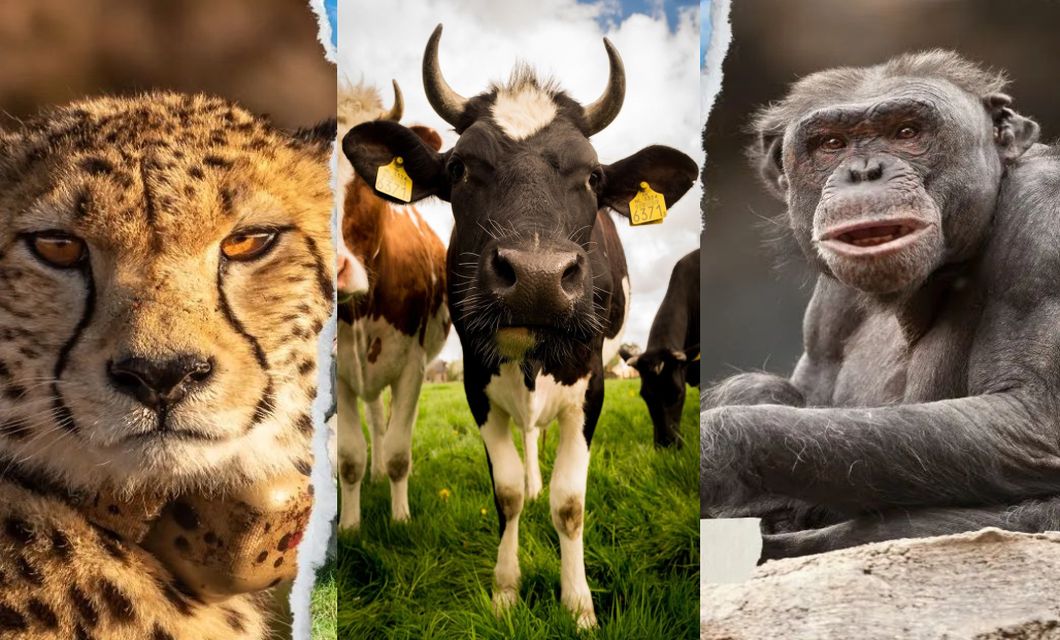By Hank Hanegraaff
People for the Ethical Treatment of Animals (PETA) embrace a worldview that elevates animals to equivalency with humans. From their perspective, that is precisely what animals are: fellow beings on a level playing field with humanity. Some, such as bioethics professor Peter Singer, have gone even further. From his perspective, a disabled newborn has less value than a chimpanzee. As an animal lover, I embrace the ethical treatment of animals but hardly the ethics of Singer or the PETA organization. Instead, in the tradition of William Wilberforce, who fought against the tyranny of slavery and founded the Royal Society of the Prevention of Cruelty to Animals (RSPCA), I am deeply committed to the humane treatment of pets and to the sanctified preservation of wildlife. As such, allow me to forward the acronym P-E-T (pecking order, exceptionalism, treatment tenets) in place of PETA.
PECKING ORDER. A primary precept of biblical theology is that there is a hierarchical structure in God’s good creation. Within that construction animals are to serve human beings in order that human beings might rightly serve the King of creation. As the Belgic Confession aptly puts it, “All creation is intended to serve man, so that man may in turn serve God. In the wisdom of God, His creation, although stratified and hierarchical, is focused on Him and His glory.” Thus, treating animals empathetically is biblically mandated; treating them as equals, blatantly misguided.
EXCEPTIONALISM. Furthermore, there is the matter of human exceptionalism: like no other creature, human beings are made in the image of God—and that makes all the difference in the world. The imago Dei ensures a Down syndrome child is afforded the same dignity given a distinguished scientist. Contra neo-Darwinians, such as Richard Dawkins, who hold that human beings have no more intrinsic value than bananas, humanity is the apex of God’s creation. As such, a child is to be cherished on a level that surpasses the cherishing of a chimpanzee. PETA’s rush to ascribe to a chimp the personhood reserved for a child is both wrong-headed and ridiculous.
TREATMENT TENETS. Commitment to the virtuous treatment of animals is an ethical imperative as sacred to Christians as it is to PETA. As Proverbs 12:10 makes plain, “A righteous man cares for the needs of his animal.” We are created in the image of God and as such are commissioned to treat nonhuman life with the care and consideration afforded them by the Creator Himself. Just as He is our protector, we are to be theirs. While we may eat lamb as our Lord did during Passover celebrations, we must never treat lambs in a way that dishonors their Creator.
In sum, a primary precept of biblical theology is that animals occupy a special role in the hierarchy of creation. While we must never supplant human exceptionalism for animal equality, we are nonetheless called to the ethical treatment of animals. As they populated Paradise past, so they will most certainly populate Paradise restored. C. S. Lewis supposed that pets “may have an immortality, not in themselves, but in the immortality of their masters.”
So God created man in His own image; in the image of God He created him; male and female He created them. Then God blessed them, and God said to them, “Be fruitful and multiply; fill the earth and subdue it; have dominion over the fish of the sea, over the birds of the air, and over every living thing that moves on the earth.”
Genesis 1:27–28 NKJV
PECKING ORDER
EXCEPTIONALISM
TREATMENT TENETS
For further study, see the viewpoint articles, Dan Story, “Is ‘Animal Rights’ a Biblical Concern? A Christian Response to the Modern Animal Rights Movement,” and Wes Jamison, “Thy (Animal) Kingdom Come, Our Will Be Done: Animal Rights Theology in the Twenty-First Century,” in Christian Research Journal 37, 2 (2014).
***Note the preceding text is adapted from The Complete Bible Answer Book: Collector’s Edition: Revised and Expanded (2024). To receive for your partnering gift please click here. ***
